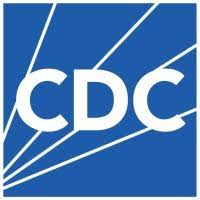Editor's Note Olympus Corporation announced a voluntary, global medical device corrective action to provide further clarification on the safe and effective use of bronchoscopes with laser therapy, argon plasma coagulation or high-frequency cauterization equipment during therapeutic procedures within the tracheobronchial tree, according to a November 3 notification from the US…

Takeaways • Determining the return on investment (ROI) for a robot-assisted surgery (RAS) program should include anticipated surgeon volume and past cases where RAS could have been used. • Some organizations dedicate staff to RAS cases, while others orient all to these procedures. • Offering ROI after hours require careful…

Editor's Note The Food and Drug Administration (FDA) has announced three new recalls between October 14 and 16 that may affect OR inventory and perioperative workflows across multiple service lines. Each recall targets a commonly used product in surgical or imaging settings, prompting leaders to review supplies and coordinate with…

Editor's Note Federal officials’ public rebuke of the Coalition for Health AI (CHAI) highlights mounting tensions over who should shape guardrails for artificial intelligence (AI) in healthcare, Modern Healthcare October 10 reports. As hospitals accelerate AI adoption, industry leaders, regulators, and developers are clashing over how to ensure the technology’s…

Editor's Note The Food and Drug Administration (FDA) on October 10 classified a cybersecurity correction involving Abiomed’s Automated Impella Controller as a Class I recall, the most serious type, according to the FDA Medical Device Recalls and Early Alerts database. While devices are not being removed from clinical settings, the…

Editor's Note The Food and Drug Administration (FDA) has expanded its early alert recall program to include all medical devices, speeding up how quickly the public learns about high-risk safety issues, Modern Healthcare October 9 reports. The initiative allows the FDA to post early alerts within days of manufacturers notifying…

Editor's Note Artificial intelligence (AI) is driving medical technology from reactive tools to adaptive learning systems, Medical Device Network October 6 reports. Shweta Maniar, Google Cloud’s global director of healthcare and life sciences, said that advances in agentic AI are enabling medtech devices to anticipate patient needs, simplify operations, and…

Editor's Note Beginning October 1, the Food and Drug Administration (FDA) is mandating that all De Novo classification requests be submitted electronically using its eSTAR system, according to a final rule and guidance issued by the agency. As detailed in the September 30 release, the shift marks a procedural change…

Editor's Note The Centers for Disease Control and Prevention (CDC) has updated its immunization schedules to emphasize individual-based decision-making for COVID-19 vaccination and to recommend that toddlers receive a standalone varicella (chickenpox) vaccine rather than the combined measles, mumps, rubella, and varicella (MMRV) shot, a CDC October 6 release reports.…

Editor's Note Following yesterday’s update on the impact of the federal government shutdown on telehealth and Affordable Care Act disruptions, the shutdown is also straining military health systems, biomedical research, and disease prevention programs, creating ripple effects for patient care and surgical innovation, Politico October 1 reports. While Medicare, Medicaid,…